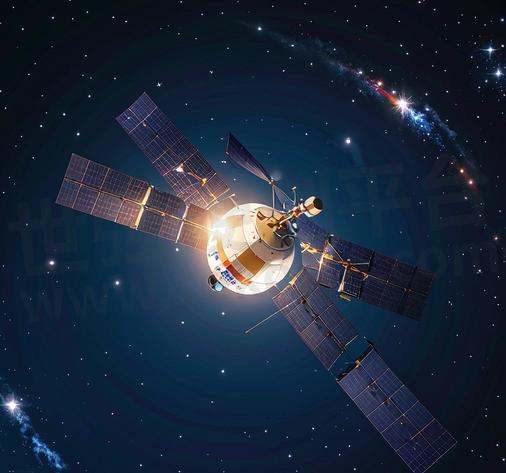What are the Advantages and Disadvantages of the Beidou Navigation System

The Beidou Navigation System is a global satellite navigation system independently constructed and operated by China. It consists of three parts: space segment, ground segment, and user segment, and can provide high-precision and reliable positioning, navigation, and timing services for various users worldwide. The Beidou system has a unique short message communication function and plays an important role in many fields such as transportation, agriculture, surveying and mapping, and disaster relief, greatly promoting economic and social development and national defense construction. It is an important achievement of China's scientific and technological development and a manifestation of the country's comprehensive strength.
How many satellites are there in the BeiDou navigation system
The BeiDou Navigation System is a satellite navigation system independently developed by China. As of December 26, 2023, the number of BeiDou navigation satellites in orbit in China has increased to 48, including 15 BeiDou-2 satellites and 33 BeiDou-3 satellites.

The Beidou-3 system consists of three different types of satellites in different orbits: satellites in a circular Earth orbit, satellites in a tilted geostationary orbit, and satellites in a geostationary orbit. Among them, Zhongyuan Earth orbit satellites are mainly used to provide navigation and positioning services on a global scale; Tilted geostationary orbit satellites and geostationary orbit satellites are mainly used to provide navigation and positioning services within a regional range, as well as to enhance the reliability and stability of the system.
The number of satellites in the Beidou Navigation System will continue to increase with the upgrading and expansion of the system. In the future, the Beidou Navigation System will continue to play an important role in providing more accurate and reliable navigation and positioning services to global users.
Which one has higher accuracy, Beidou or GPS
The accuracy of the Beidou system and GPS may vary in different aspects, and the specific higher accuracy depends on the specific application scenario and requirements.
In terms of global public services, the positioning accuracy of Beidou and GPS is not much different, both around 2 to 3 meters. But in the military field, China's Beidou can reach 0.1 meters, while GPS is 0.3 meters.
The Beidou system has some unique advantages, such as its short message communication function allowing users to send text messages via satellite without mobile phone signal. In addition, the positioning accuracy of the Beidou system in the Asia Pacific region may be higher.
The GPS system has a long history and a wide range of application foundations, and its availability and compatibility are good on a global scale.
In practical applications, the Beidou system or GPS can be selected based on specific needs and scenarios, or a combination of the two can be used to obtain more accurate positioning results.
What are the advantages and disadvantages of the Beidou Navigation System
The advantages of the Beidou navigation system include:
1. Wide coverage: The BeiDou navigation system covers areas such as China, the Asia Pacific region, Oceania, etc., and can meet the navigation and positioning needs of users in these regions. At the same time, the Beidou Navigation System also supports global networking, which can complement other international satellite navigation systems, improve navigation accuracy and reliability.
2. High signal strength: The BeiDou navigation system uses CDMA technology, which has a higher signal strength than GPS and GLONASS, and can maintain stable signals in complex urban environments and complex terrains such as forests and canyons.
3. High navigation accuracy: The BeiDou navigation system has high-precision navigation and positioning capabilities, which can achieve centimeter level position accuracy. This is of great significance for industries that require high-precision positioning, such as aviation, ocean, surveying, etc.
4. Widely applicable: The Beidou Navigation System is widely used in transportation, meteorology, agriculture, fisheries, geological exploration, public safety and other fields, providing users with comprehensive navigation, positioning, and time services.
5. Short message communication function: The BeiDou navigation system innovatively integrates navigation and communication capabilities, and the short message communication service is not available in other built navigation systems. At present, the service capabilities of short message communication services vary in different regions. The communication capabilities in the Asia Pacific region reach 14000 bits (1000 Chinese characters) each time, which can transmit both text and voice and images. However, it supports short message communication capabilities of 560 bits (40 Chinese characters) each time globally.
6. Interstellar Link System: Beidou-3 utilizes interstellar links to communicate, measure distance, and maintain formation with each other, solving the problem of ground measurement and control stations being unable to build globally due to geopolitical factors, ensuring that the signals of the Beidou navigation system can continue to provide services even when GPS signals weaken or even disappear.
7. Atomic Clock: The Beidou-3 satellite navigation system uses specially developed higher performance onboard rubidium atomic clocks and hydrogen atomic clocks, further improving satellite performance and lifespan, laying the foundation for the system to provide centimeter level positioning capabilities.
The main drawbacks of the Beidou navigation system are:
1. High equipment price: The equipment price of the BeiDou navigation system is relatively high, which means that for individual users, the purchase cost is high and the threshold for use is high.
2. Small number of users: Due to the low promotion and popularization of the Beidou Navigation System, the number of users using the system is relatively small, and there is relatively less information exchange and collaboration among users.
3. Limited application scenarios: The application scenarios of Beidou Navigation System are relatively limited, mainly applied to specific industries, and for general users, its practical value is relatively low.
- +1 Like
- Add to Favorites
Recommend
- PDOP Value of BeiDou Satellite Navigation System, BeiDou Positioning Module
- The Composition Characteristics and Advantages of the Beidou System
- The Introduction of Global Navigation Satellite System-GNSS
- Navigation Enhancement Technology: The Path to Upgrading Satellite Navigation Services
- What Fields can the Single Beidou Module be Applied to
- Active Bluetooth Positioning and Navigation System
- SKYLAB Has Launched a Bluetooth Indoor Positioning and Navigation System Solution
- Keysight and Orolia Advance 5G Location-Based Services Based on Global Navigation Satellite System Technologies
This document is provided by Sekorm Platform for VIP exclusive service. The copyright is owned by Sekorm. Without authorization, any medias, websites or individual are not allowed to reprint. When authorizing the reprint, the link of www.sekorm.com must be indicated.
























































































































































































































































































































































































































































































































































































































































































































































































































































































